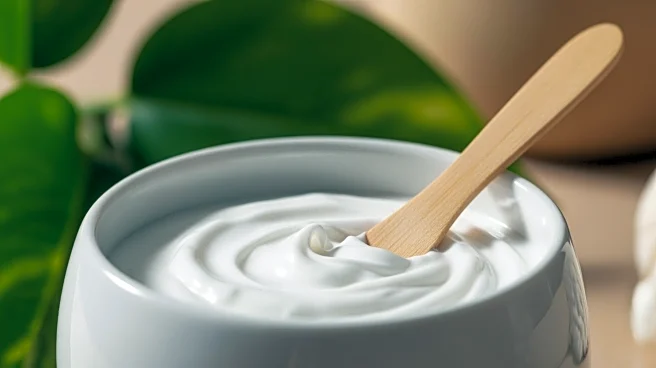What's Happening?
Researchers at St. Olaf College in Minnesota have conducted a study on the effects of creatine supplementation for menopausal women. The study involved 15 female participants, both perimenopausal and postmenopausal, who took 5g of creatine daily and engaged in strength training twice a week for 14 weeks. The findings indicated improvements in muscle strength, body composition, sleep quality, and cognitive function. The study suggests that creatine may help stabilize sleep patterns and support cognitive resilience during hormonal transitions, potentially benefiting women experiencing menopause.
Why It's Important?
The study highlights creatine's potential as a beneficial supplement for menopausal women, addressing common issues such as muscle loss, bone density reduction, and cognitive changes. As estrogen levels decline during menopause, these risks increase, making creatine a promising option for supporting muscle strength, energy metabolism, and brain function. The research adds to the growing body of evidence supporting creatine's role in enhancing brain energy metabolism and neuroprotection, offering a safe and effective tool for women's health during hormonal transitions.
What's Next?
While the study is still undergoing peer review, the promising results may encourage further research into creatine's benefits for menopausal women. Healthcare providers might consider recommending creatine supplementation as part of a comprehensive approach to managing menopause-related health challenges. Additionally, the study's findings could lead to increased awareness and acceptance of creatine as a viable supplement for women beyond its traditional use in sports nutrition.
Beyond the Headlines
The study underscores the importance of personalized healthcare approaches, particularly for women undergoing hormonal transitions. Creatine's potential to improve sleep quality and cognitive function may have broader implications for mental health and well-being during menopause. As creatine is affordable and well-researched, it could become a popular choice among women seeking to maintain their health and vitality during midlife.










